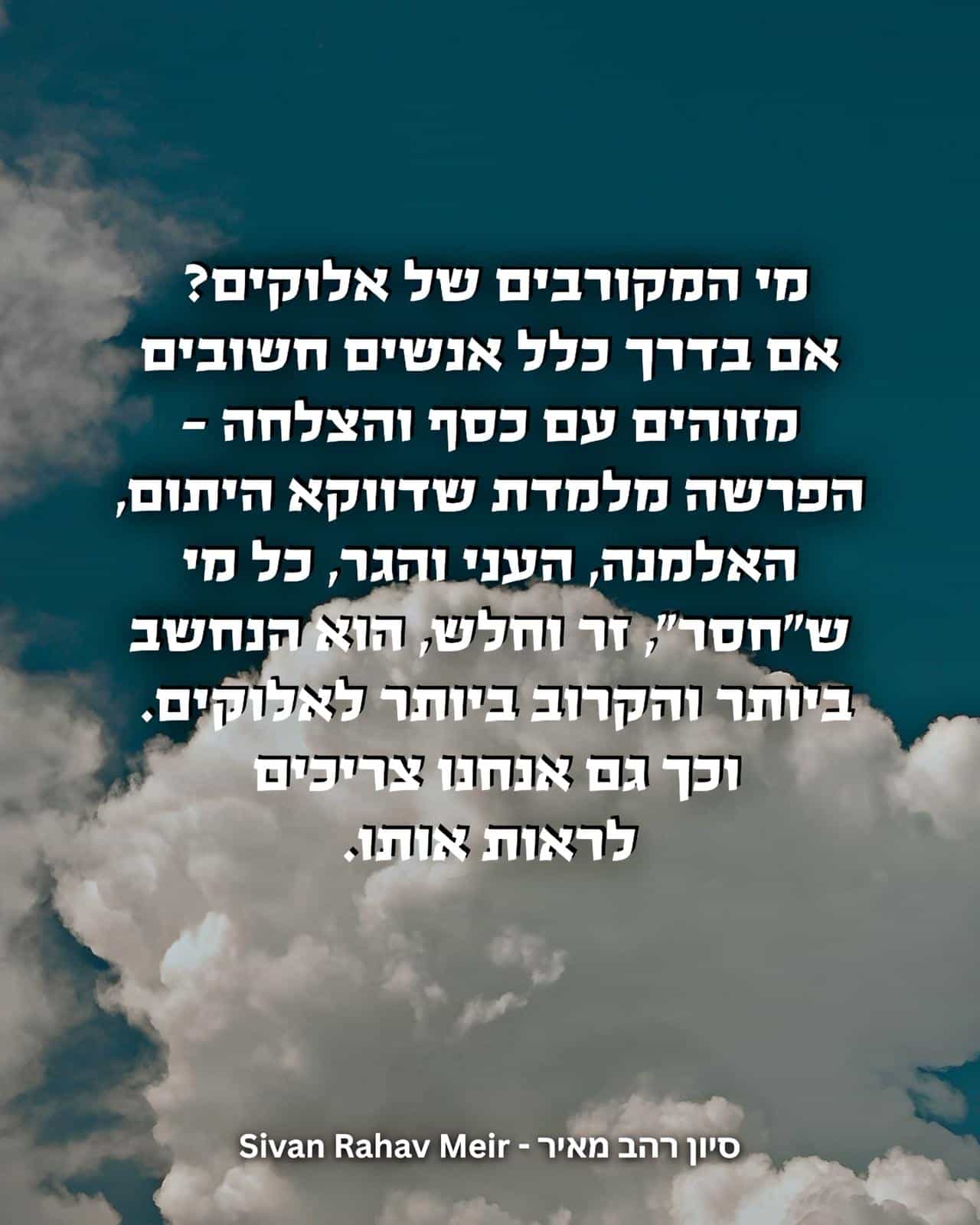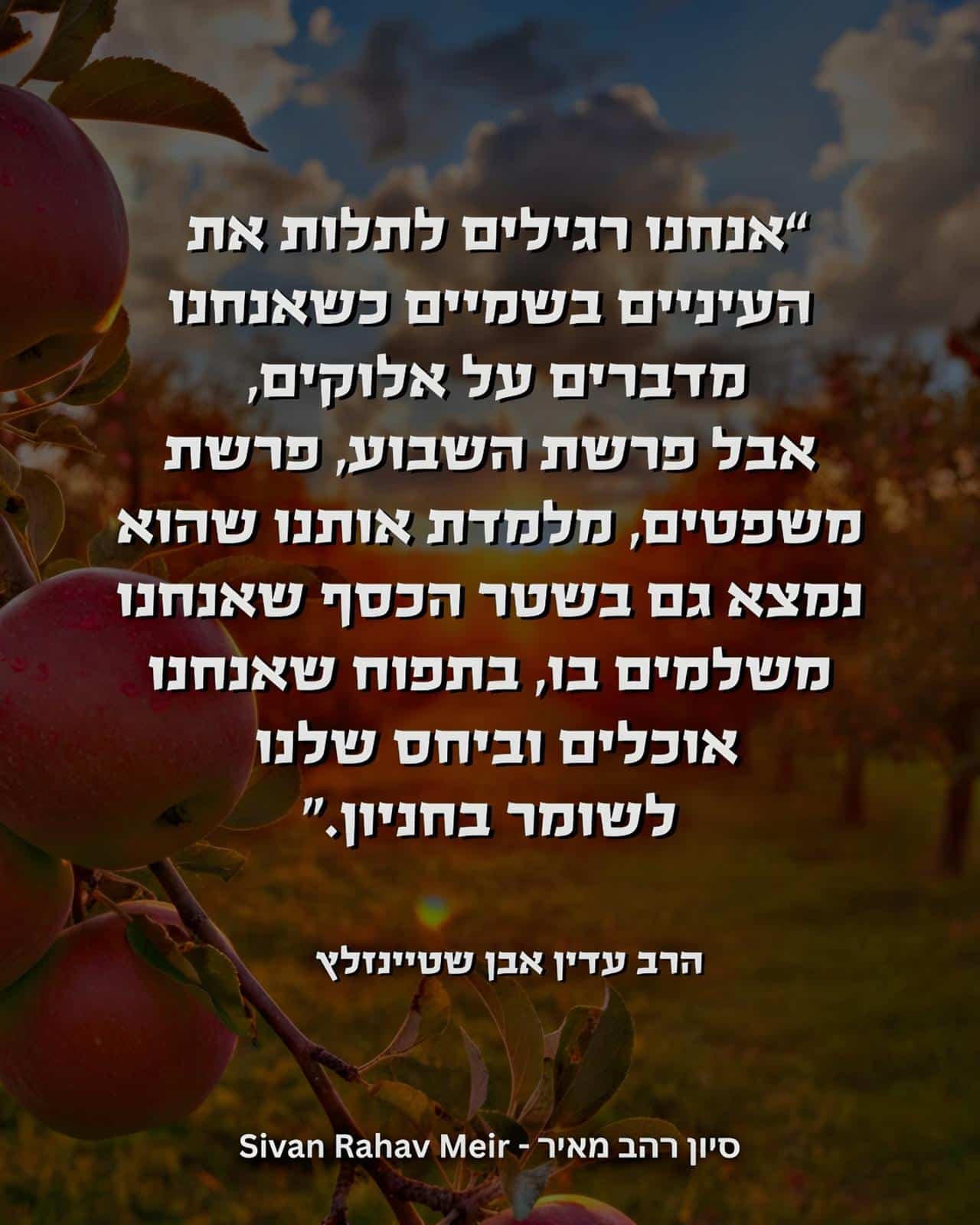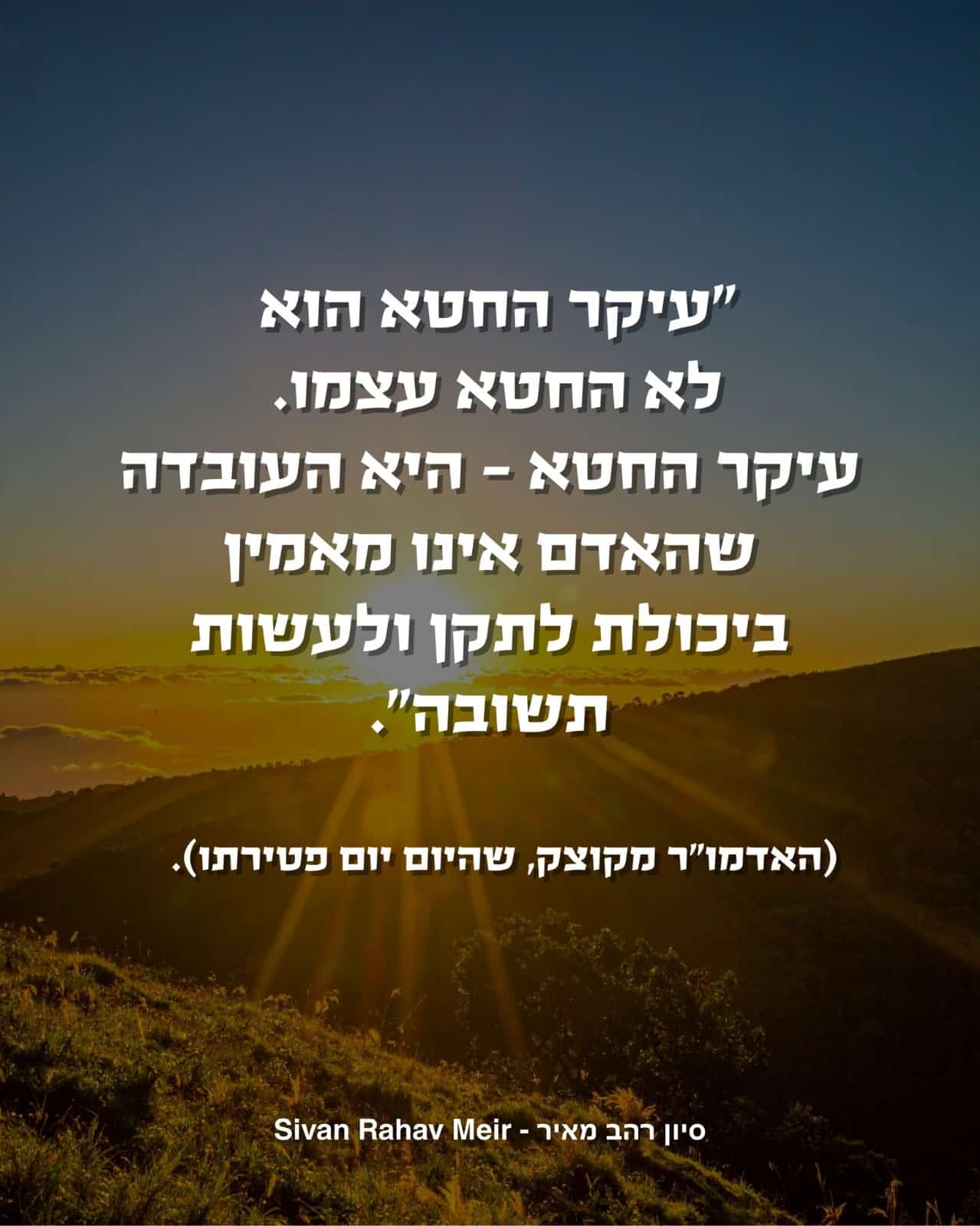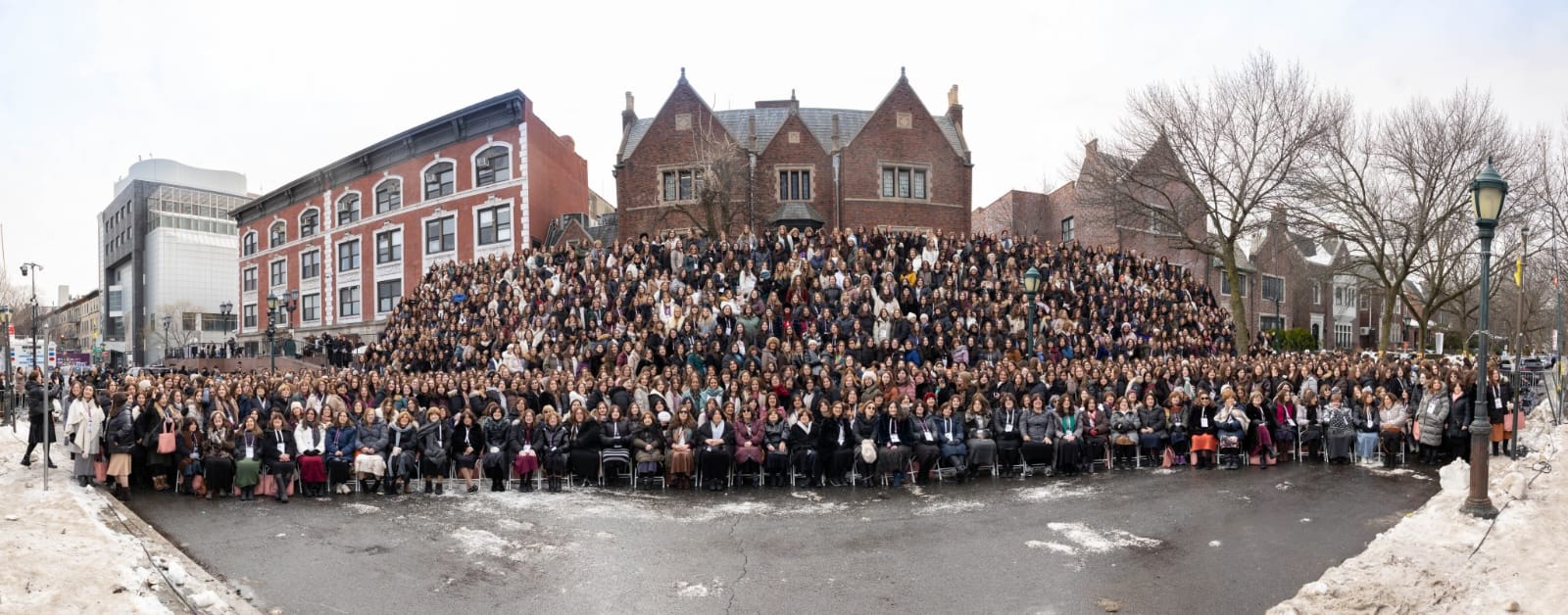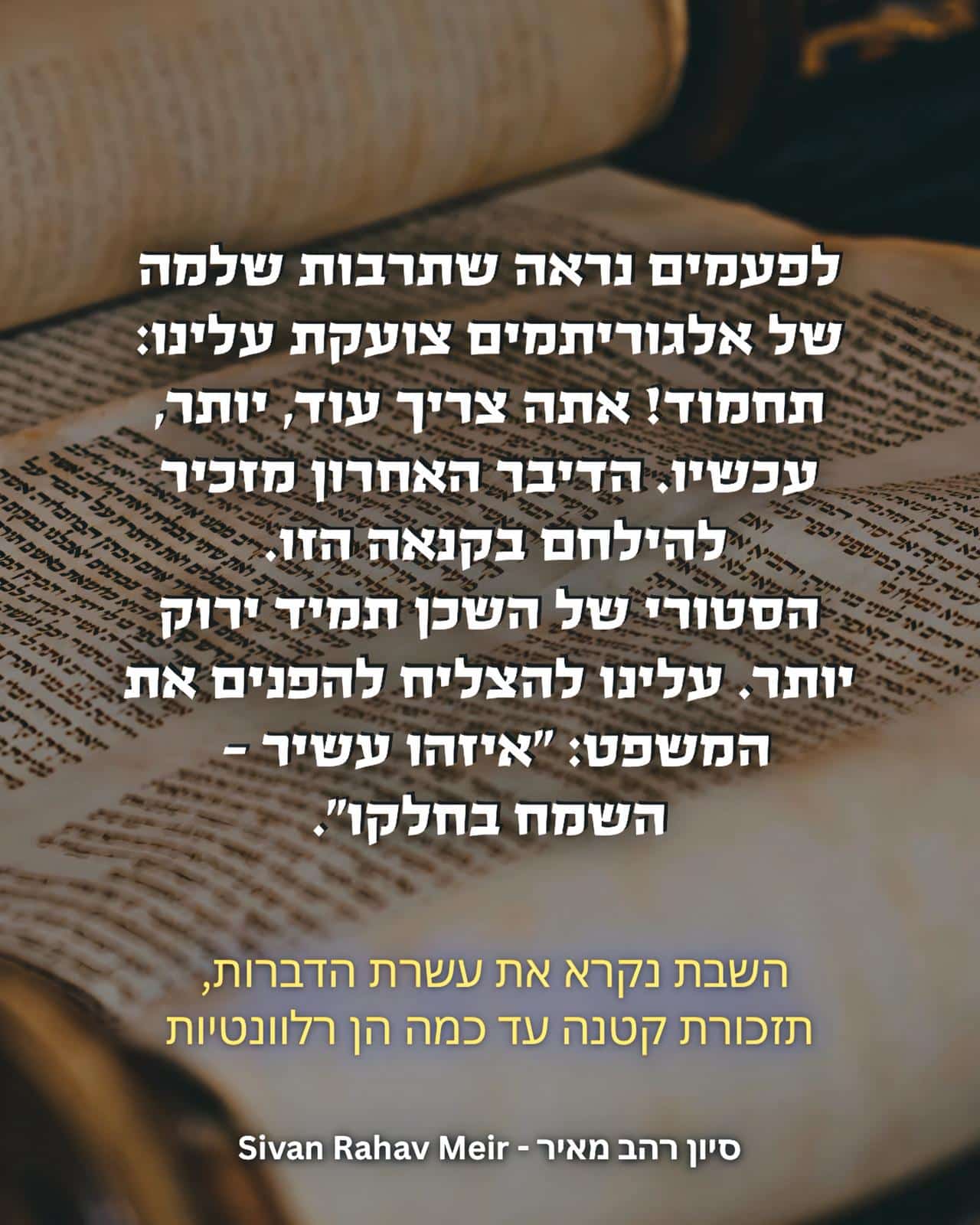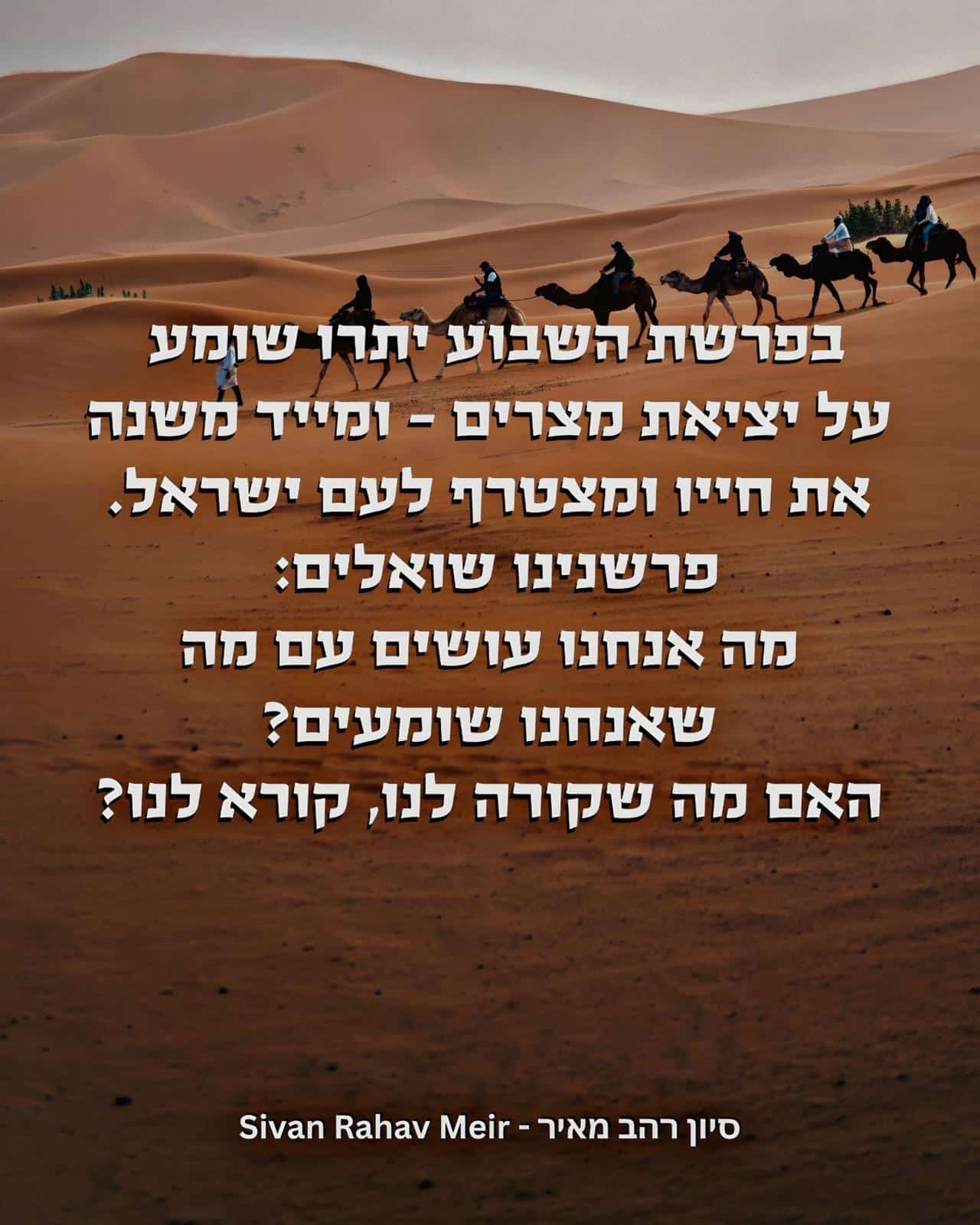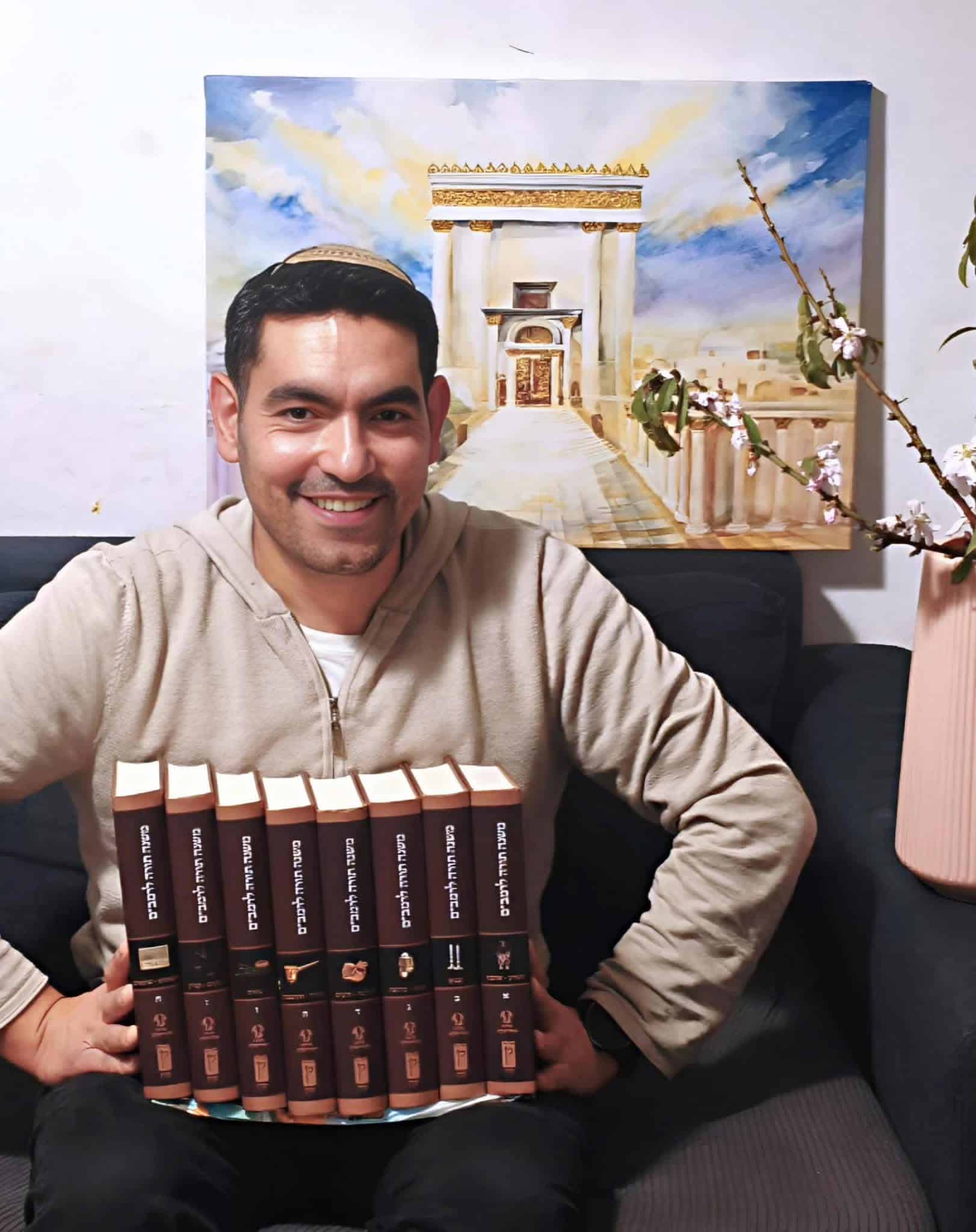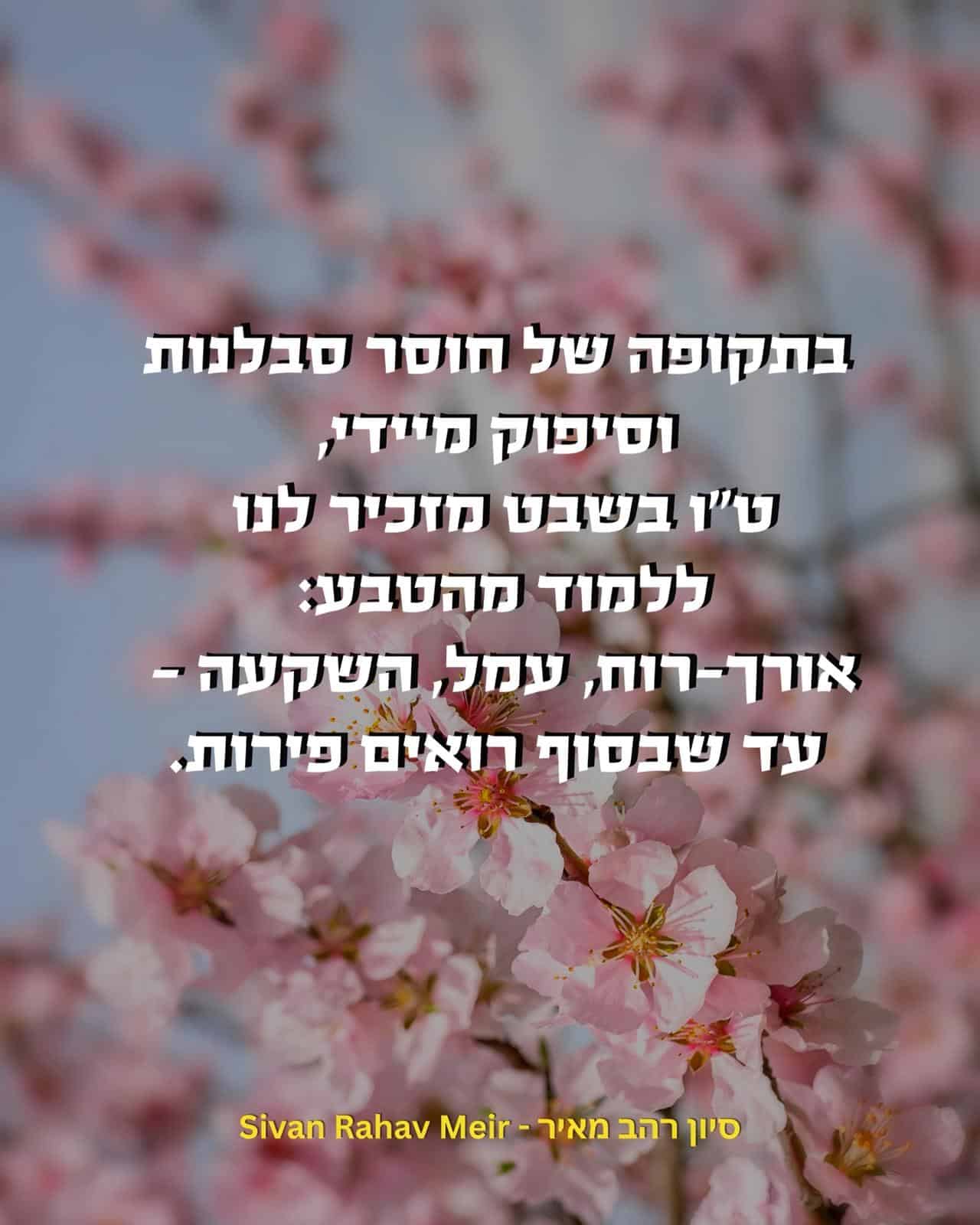Translation by Yehoshua Siskin
Here is a friendly reminder of what's in store for us in the days ahead:
1. This Shabbat and Sunday are Rosh Chodesh (the first and second days of) Elul. Many people will begin to say Selichot (prayers for Divine forgiveness) on Sunday night. The month of Elul is full of customs that awaken us to do teshuvah, to rectify sins and improve ourselves as we approach Rosh HaShanah.
2. This week's Torah portion, Re'eh, is the fourth parasha in the Book of Deuteronomy. It is a continuation of the farewell speech of Moshe Rabbeinu to the nation. He speaks to us about Jerusalem and the Holy Temple, about kashrut and tzedakah but, above all, about freedom of choice. "Behold I set before you today a blessing and a curse" (depending on whether you follow God's commandments or not).
3. After the Torah reading in the synagogue, we read the haftarah. There are congregations where a consolation haftarah from the prophet Isaiah is read, one in a series of seven such haftarot that follow consecutively, each Shabbat, for the seven weeks following Tisha B'Av. Other congregations read a different Rosh Chodesh haftarah from Isaiah, but similarly consoling, as follows: "Rejoice with Jerusalem and exult in her all those who love her; rejoice with her a rejoicing, all who mourn for her... Like a man whose mother consoles him, so will I console you, and in Jerusalem, you shall be consoled." In any case, everyone will hear a haftarah with words of consolation on Shabbat.
4. On Sunday, the 1st of Elul, the school year will begin for a large segment of the Jewish world when a multitude of students in Israel and abroad will return to Torah studies, from those enrolled in Talmud Torah (elementary) schools to those learning in yeshivot. On Thursday, the 1st of September, if there will not be a teachers' strike, more than two million Israeli children -- from kindergarten to high school -- will go back to school.
5. We can already begin to say: "Ketiva ve'chatima tova" (May you be written and inscribed for good (in the Book of Life)." This is the customary wish that we make for each other during the thirty days that precede Rosh Hashanah.
Wishing everyone Shabbat shalom and ketiva vechatima tova as well.

